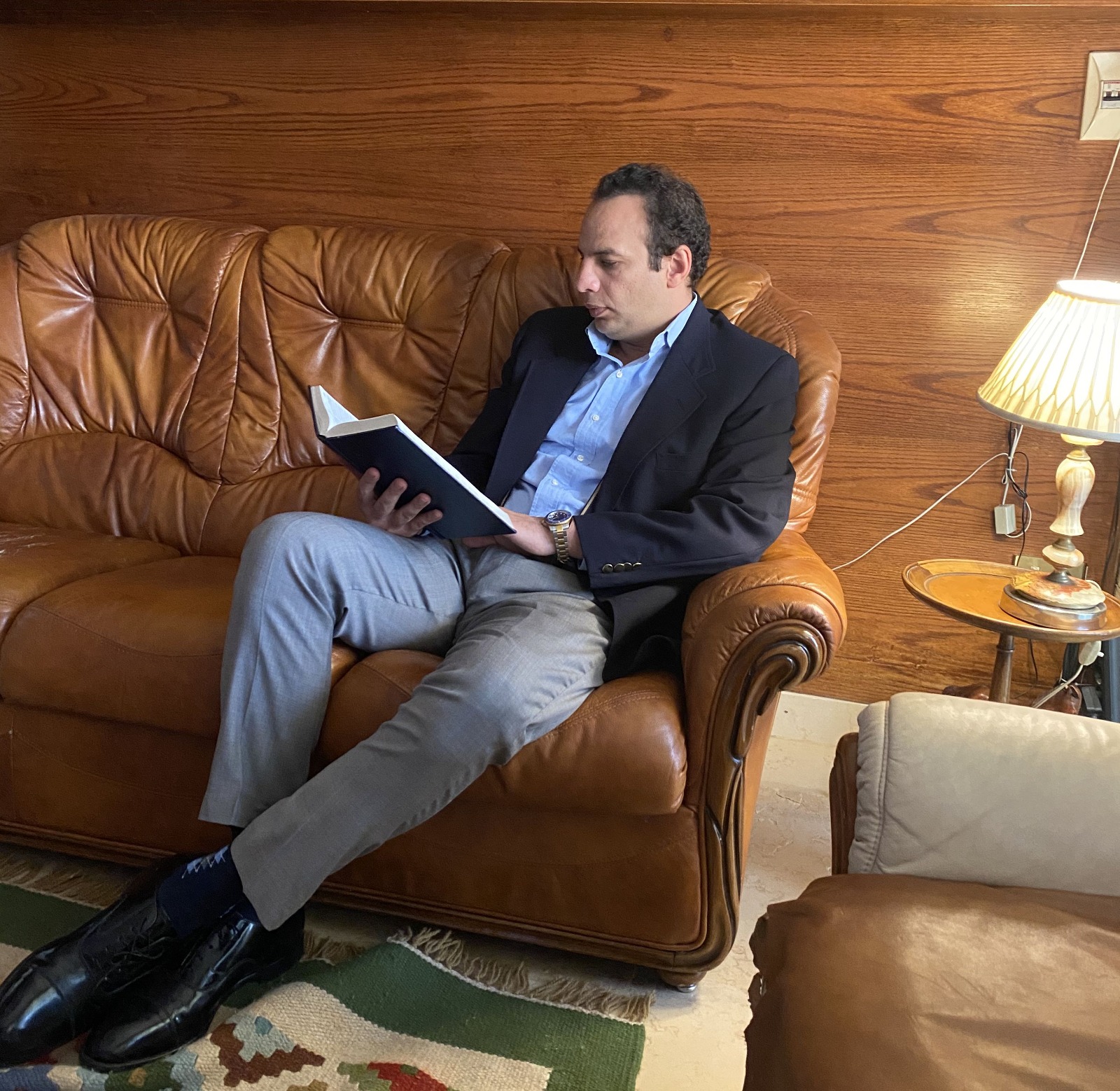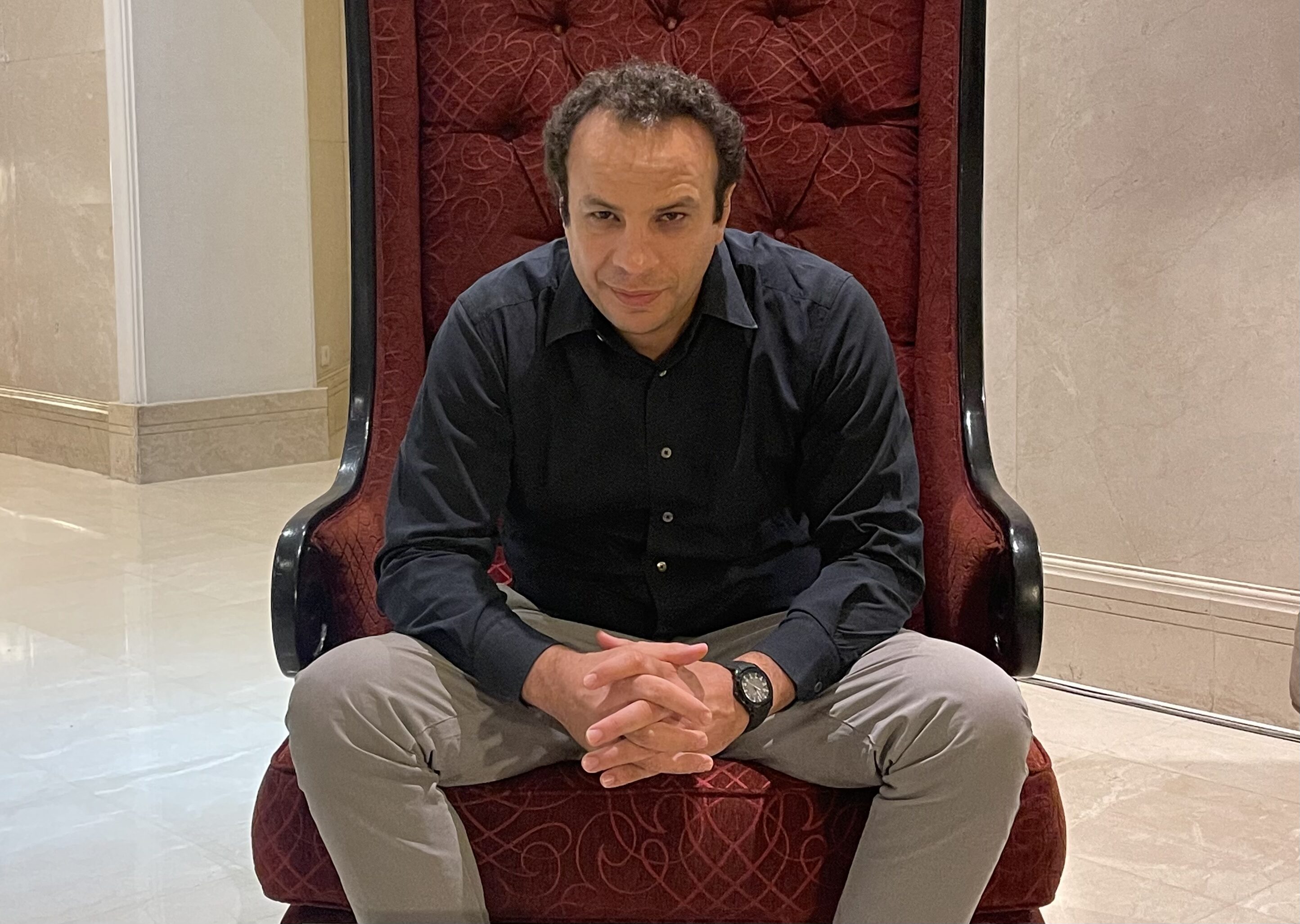Osama Wahba has long been recognized as one of Egypt’s most influential entrepreneurs. He is known for his ability to modernize and scale previously considered outdated industries.
With a keen eye for innovation and an unmatched ability to build structured business models, Wahba has transformed some of Egypt’s oldest trades—tailoring, shoe repair, and furniture restoration—into scalable, global franchises.
“I’m not interested in maintaining businesses,” Wahba states. “I get excited about transforming and restructuring industries.”
With a strong foundation in economics and a passion for driving systemic change, Wahba began his studies at Cairo University, majoring in Economics and Political Science. His academic excellence earned him a prestigious U.S. State Department scholarship to complete his undergraduate education at the University of South Carolina, where he graduated summa cum laude.
His academic path continued at Cambridge University, where he was awarded the Chevening Scholarship and completed a Master of Philosophy focused on economic and political systems. He later began PhD studies at Cambridge but returned to Egypt in 2011 to contribute to the country’s post-revolution transformation.
Following the revolution, Wahba was selected to advise Egypt’s president and assembled a group of top global graduates to support the nation’s reconstruction. Despite initial momentum, shifting political dynamics posed challenges to policy implementation.
This experience prompted Wahba to shift his focus from public policy to entrepreneurship, where he saw greater opportunity to enact meaningful, scalable economic impact through innovation and private sector leadership.
His first major success came with Mr. Tailor, a clothing alterations business that redefined tailoring services in Egypt.
“Mr. Tailor started when I was invited for a high-profile meeting with the President of Egypt,” Wahba recalls.
“I took the first flight to Cairo and realized I had no suit, so I rushed to a tailor for last-minute adjustments. The experience was chaotic—smoky fitting rooms, disorganization, and no punctuality. I promised myself I’d return and find a way to bring structure to this business.”
Wahba’s transition to entrepreneurship successfully transformed an informal trade practiced in unregulated workshops into a structured, customer-oriented business with standardized pricing, a franchise model, and technology-driven service tracking.
The success of Mr. Tailor paved the way for further ventures, including Mr. Cobbler, a modernized shoe repair and cleaning service, and Mr. Sofa, a company that brought efficiency and professionalism to furniture restoration.
His business model has revolutionized these industries and set a precedent for modernizing traditional service sectors worldwide.
Through Disrupt Ventures, Wahba plans to continue demonstrating his expertise in turning fragmented, unstructured industries into professional, high-growth businesses.
“I’m proud of how we revived and modernized Egypt’s tailoring and cobbling industries,” Wahba says.
“When we started, these businesses were seen as outdated and declining. Now, because of our structured approach, others have followed suit. While they are competitors, I am happy that we initiated a movement toward professionalism and quality.”
Disrupt Ventures: The Birth of a Scalable Business Model
Before the launch of Mr. Tailor, Mr. Cobbler, and Mr. Sofa, Egypt’s alteration, shoe repair, and furniture restoration industries suffered from slow service, inconsistent quality, and lack of standardization.
Businesses operated informally, deterring high-value customers and limiting scalability. Safety concerns also discouraged female customers, who were hesitant to use these services that were operating in unregulated, male-dominated environments: “We’ve created safer, more accessible workspaces for women by hiring female tailors to assist female customers, addressing concerns about harassment in traditional tailoring shops,” Wahba states.
Disrupt Ventures transformed the industry by introducing structured operations, transparency, technology, and a scalable model.
Through transparent pricing, Wahba established a fixed-price model that prevents overcharging and creates space for cashless payments and digital invoicing. With improved speed and efficiency, the business model created unprecedented 1-hour services for minor alterations. This improvement also offered automated tracking for real-time order updates. As a result, through Disrupt Ventures, Wahba has seen a 40% reduction in turnaround times and has improved customer satisfaction by 70%.
Wahba’s goal of implementing consistency across his business locations has led to the first multi-branch service chain for these services through a standardized retail experience. This consistency also extends to Wahba’s hiring process to ensure all employees are trained to the same standard.
Those hired must participate in a structured training program to keep business practices consistent at all branches.
The Honorable Hend Rashad, Egyptian Parliament member and Secretary of the Culture and Mass Communication Committee, highlights the benefit of this structured training for employees and its long-term effects.
“Mr. Wahba’s structured training programs have transformed economic mobility by recruiting unskilled individuals—many from underprivileged backgrounds—and equipping them with hands-on training in tailoring, shoemaking, and furniture restoration,” Rashad explains. “This initiative has enabled hundreds of workers to transition from unstable, daily-wage labor to full-time, salaried positions, providing financial stability and long-term career prospects.”
“We have strict hiring processes and background checks to ensure the best talent,” Wahba explains.
“For example, out of 100 applicants, we might select only a handful of tailors after thorough vetting. We also provide structured training and maintain a clear store hierarchy—each store has a manager, deputy manager, and specialized tailors for different types of garments. This ensures efficiency and professionalism.”
He also highlights the importance of his freeriding franchising model: “What made our franchising model succeed wasn’t just the speed at which we scaled—it was the control we maintained across every location. We built a system that solved the franchising free-riding problem by embedding structure, accountability, and consistency into every branch. That’s how we could turn industries most people had written off into scalable, trusted businesses that investors and customers could rely on.”
Wahba is elevating industry standards through advanced technology integration. This includes precision stitching through computerized sewing machines to improve the quality and durability of clothing.
“We’ve introduced POS (point of sale) systems tailored for our work, implemented a customer tracking system, and even developed unique ways to transform old suits into modern ones,” Wahba explains.
His advanced technology integration provides a seamless customer journey through real-time tracking and digital payments.
Customer experience is further reinforced through retail-styled stores, secure dressing rooms, pickup and delivery services, and a dedicated customer service hotline—a service that less than 1,000 businesses in Egypt utilize.
Wahba has also secured corporate partnerships with luxury brands, including Gucci, Louis Vuitton, and Christian Louboutin.
His model has not only created over 500 full-time jobs but has also introduced fair wages, skill-building programs, and career growth opportunities for workers who had previously operated in informal conditions.
“My biggest satisfaction is seeing how our employees’ lives have transformed,” Wahba shares. “Before, many of them lived on daily wages. Now, they earn stable monthly salaries, have health insurance, and can save for their families.”
Disrupt Ventures’ business model extends beyond the direct beneficiaries of Wahba’s businesses. By introducing structure to industries that previously lacked professional organization, he has set new industry standards, encouraging competitors to modernize and elevate the overall quality of service available to consumers.
His businesses have transformed perceptions of these trades, demonstrating that traditional services can thrive in the modern economy with the right approach.
Scaling the Model to the U.S. Market
The demand for Wahba’s expertise is growing rapidly, particularly as he plans to bring his business model to the United States.
“It’s unbelievable how a country this advanced still has trades that operate as they did a hundred years ago,” Wahba says. “I see a massive opportunity to polish and structure these businesses, giving them the branding, administration, and scalability they need.”
U.S. consumers are already interested in structured, technology-driven service industries that combine quality craftsmanship with modern convenience. The gaps in service industries such as clothing alterations, shoe repair, and furniture restoration mirror those that existed in Egypt before Wahba’s intervention.
”It’s challenging to convince people to build businesses that strive for the highest levels possible,” Wahba says. “I try to get them to see the bigger picture and understand the potential for international expansion.”
Mohamed Alaa Abdel-Moneim is an Associate Professor at Cairo University under the Faculty of Economics and Political Science which is Egypt’s most prestigious institution for economics and political studies.
“I have followed Mr. Wahba’s work for nearly two decades and can confidently state that his contributions to policy development, economic modernization, and workforce empowerment are exceptional—both in their measurable impact and their relevance to U.S. national interest,” Abdel-Moneim says.
“His ability to apply global best practices to local challenges reflects a deep commitment to evidence-based policymaking and has informed meaningful policy recommendations.”
His ability to recognize inefficiencies and implement scalable solutions makes his expansion into the U.S. promising and necessary.
Dr. Shereen El Sabagh is Chair of the Higher Advisory Committee of the Youth Leadership Development Program (YLDP) in Egypt. As an expert in trade reforms, SME empowerment and sustainable business practices, Sabagh praises Osama’s business model for its economic innovation and impact.
“Mr. Wahba is a pioneering entrepreneur whose innovative and scalable business models integrate sustainability, advanced technology, and industry modernization seamlessly,” Sabagh explains.
“Small businesses constitute approximately 44% of U.S. economic activity, emphasizing the critical importance of visionary entrepreneurs like Osama in driving economic growth, employment, and sustainable development.”
The U.S. has 732,842 franchise businesses, employing 7.6 million people and generating $674 billion in economic output (2.5% of GDP). In 2021, franchises played a key role in the post-pandemic recovery, growing by 16.3% and reaching $787.7 billion in output.
Backed with this data, Disrupt Ventures aims to modernize the franchise industry through branding, advertising, AI Integration and CRM (customer relationship management) solutions to enhance market positioning and efficiency.
The company will support entrepreneurs with market research, business planning, and mentorship, helping them launch and scale franchise businesses. Wahba plans to drive economic growth, job creation, and industry resilience by introducing store-in-store franchising and other scalable models.
“I’ve mentored many people over the years, and I’ve reviewed business plans, marketing strategies, and branding packages to help them grow and refine their businesses,” Wahba says.
The U.S. also faces a critical labor shortage, with over 4.1 million Americans retiring annually and 9 million job openings monthly in 2023, leading to an unrealized revenue of $1.748 trillion by 2030. Wahba’s initiative will address workforce gaps by establishing training programs for cobblers and tailors, ensuring a sustainable talent pipeline for industries facing decline.
Wahba also plans to operate Disrupt Ventures out of Orlando, FL, to support economically distressed areas. As a HUBZone-certified business (Historically Underutilized Business Zone), Disrupt Ventures would receive federal contract opportunities, encouraging investment in underserved areas.
A Profitable and Socially Impactful Business Opportunity
Investors have also noticed Wahba’s success and potential for continued expansion. His ability to build high-growth businesses that are both profitable and socially impactful makes his ventures particularly appealing to those looking to invest in scalable enterprises.
Misr El-Kheir, one of Egypt’s largest non-governmental organizations, has recognized the long-term potential of Wahba’s Disrupt Ventures. As a result, they have sought to acquire a 40% stake in his companies. This, after the organization’s Board of Trustees and Investment Committee assessed the financial performance of his ventures exceeding $1 million annually.
Mohsen Mahgoub, Vice Chairman and Managing Director of Ibnsina Pharma, is also a co-founder of Mis El-Kheir. He notes Disrupt Ventures’ profitability as a financial success and an indicator of Wahba’s “extraordinary ability, industry leadership, and high market valuation.”
“In the service industry, particularly in clothing alterations, shoe repair, and business development, it is uncommon for an entrepreneur to reach this income level,” Mahgoub states.
“These sectors are typically fragmented and informal. Mr. Wahba’s ability to scale and professionalize these industries—transforming them into highly profitable, investment-attractive businesses—sets him apart from others in his field.”
Beyond investors, Wahba’s initiative has also generated interest from veterans looking for structured career opportunities.
“Our businesses provide stability, skill development, and leadership opportunities,” Wahba explains. “It’s a perfect fit for veterans transitioning to civilian careers.”
His businesses, with their strong focus on discipline, skill development, and leadership, provide an ideal platform for veterans transitioning to civilian careers. His structured training programs and emphasis on professional development align well with the strengths and skills that veterans bring to the workforce.
Consequently, Wahba’s expansion into the U.S. presents a unique opportunity for former service members to engage in meaningful, long-term careers within industries that are being revitalized under his leadership.
Ambassador Yasser Al-Naggar is an advisor to the Foreign Minister of Egypt, a former Ambassador of Egypt to the US, and Egypt’s Former Representative in the UN. He is also the Chair of the Middle East and Africa with Basilinna Consulting Firm.
The Ambassador met Wahba through T20 Group, a prestigious economic and policy network, and through the Ministry of Planning, where Al-Naggar was previously Deputy Minister of Planning.
“Osama is not just a businessman,” Al-Naggar states. “He is a policy architect, an economic reformer, and a thought leader who played a crucial role in national strategy formulation.”
Wahba carries this expertise as a T20 board member, head of the entrepreneurial committee, and judge for the T20 Awards. In this space, he identifies Egypt’s emerging startups. The selective competition honors the top 3 tech startups and top 3 non-tech startups based on innovation market potential and scalability.
He has also been featured in prominent Egyptian publications, including Egypt Today Magazine and Rose al-Youssef, for his role as a leading figure in business transformation.
Reshaping Industries for a Sustainable Future
Government officials and institutions also note Wahba’s work and its potential for economic growth. His business model aligns with national efforts to modernize small businesses, create stable jobs, and introduce sustainable industry practices.
Wahba’s venture aligns with U.S. government initiatives to support SME growth, enhance economic resilience, and promote innovation through expanded access to capital, job creation, and operational efficiency.
His efforts specifically support the Tax Cuts and Jobs Act, helping SMEs leverage tax benefits, optimize operations, and adopt advanced technologies to drive long-term success.
His work supports broader economic policies focused on workforce development and innovation by providing structured employment opportunities and integrating technology-driven solutions into traditional service industries.
The U.S. economy is driven by small businesses, which make up 99% of all companies in the country. His expansion is seen as a strategic contribution to local economies, offering a replicable model for job creation and business modernization.
Wahba’s impact extends far beyond the businesses he has built; he has redefined what it means to scale traditional industries into global enterprises. His model of structured operations, efficiency, and technology integration has changed how businesses operate and influenced how industries evolve.
Through Disrupt Ventures, Wahba plans to encourage sustainable growth for SMEs [small and medium-sized enterprises] through eco-friendly strategies and financial resilience. This includes streamlining operations, enhancing productivity, and improving profitability by optimizing supply chains, workforce allocation, and customer service.
Wahba also believes the practice of sustainability extends to customers’ mindsets: “Our work supports sustainability by encouraging customers to repair rather than replace clothing, reducing waste,” he explains.
His journey from modernizing Egypt’s service industries to expanding his vision into the U.S. represents a more significant movement toward sustainable, high-quality business practices that benefit workers and consumers alike.
A Global Business Empire in the Making
As Wahba continues to expand his business empire, the anticipation surrounding his U.S. launch grows. His ability to bring structure, consistency, and professional management to previously overlooked industries positions him as a leader in business transformation.
The success of his ventures in Egypt has already demonstrated that his model is adaptable, scalable, and capable of generating long-term economic benefits. Now, as he prepares to introduce his disruptive business model to the American market, the stage is set for yet another industry revolution under his leadership.
Osama’s entrepreneurial success is a testament to the power of vision, strategy, and execution: “I never give up,” Wahba says. “If I had followed the industry’s status quo, I would have achieved nothing. I push for change and keep fighting until the job is done.”
His work has reshaped industries, created lasting economic impact, and provided stable, dignified employment for hundreds of individuals. His ability to identify inefficiencies and transform them into structured, scalable business opportunities has made him one of the most influential entrepreneurs in Egypt, and soon, he will bring that same transformative energy to the U.S.





































